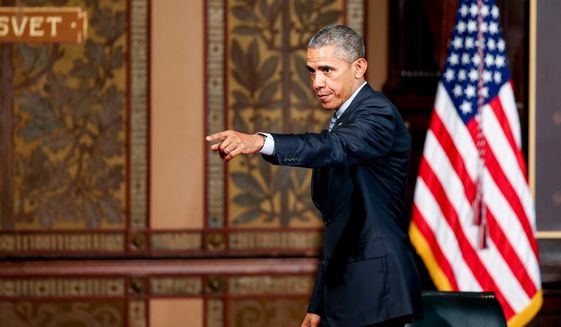The Obama administration formally announced that inspectors general will have to get permission from their agency heads to gain access to grand jury, wiretap and fair credit information — an action that severely limits the watchdogs’ oversight capabilities, independence and power to uncover fraud.
An opinion, issued by the Department of Justice's Office of Legal Counsel, says the Inspector General Act of 1978 — which was written by Congress to create the government watchdogs in order to help maintain integrity within their agencies — does not have the authority to override nondisclosure provisions in other laws, most notably in regard to grand jury, wiretap or fair credit information.
“In reaching these conclusions, our Office’s role has not been to decide what access [inspectors general] should receive as a matter of policy. Rather, we have endeavored to determine as a matter of law, using established tools of statutory construction, how best to reconcile the strong privacy protections … with the interest in access reflected in … theIG Act,” states the legal counsel’s opinion, which was dated Monday and released Thursday.
“I strongly disagree with the OLC opinion,” Michael Horowitz, the Justice Department’s inspector general, said in a statement. “Congress meant what it said when it authorized Inspectors General to independently access ‘all’ documents necessary to conduct effective oversight. Without such access, our Office’s ability to conduct its work will be significantly impaired, and it will be more difficult for us to detect and deter waste, fraud, and abuse, and to protect taxpayer dollars.”
Mr. Horowitz has had to seek former Attorney General Eric H. Holder Jr.’s permission, and now Loretta E. Lynch’s, to gain access to such material. The approval process in obtaining the materials delayed review of Operation Fast and Furious — the failed Mexican drug cartel sting that lost track of more than 1,000 government-issued guns, one of which later was used to kill a U.S. Border Patrol agent — and has delayed other reports the inspector general is set to publish.
At no point has the Justice Department denied any of Mr. Horowitz’s requests, but some in Congress have argued that requiring the inspector general to ask the attorney general for materials represents a direct conflict of interest and impairs the inspector general’s independence.



